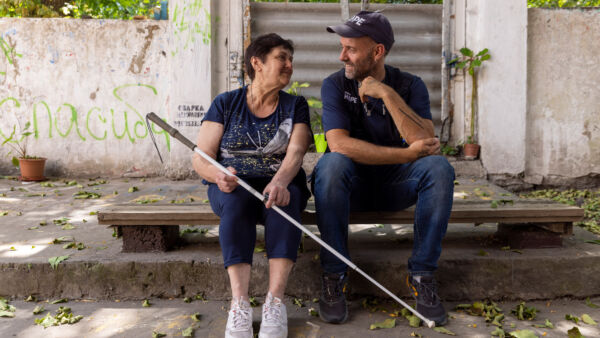News Alert: New Assessment Reveals Alarming Health Needs in Southern Haiti

Project HOPE recently conducted a comprehensive assessment in Haiti’s Grand Sud region, revealing alarming health needs that are affecting communities reeling with gang violence, political and economic turmoil, and food insecurity.
The assessment provides a harrowing insight into the challenges faced by people living in Sud, Nippes, and Grand’Anse. Over 560 individuals and 11 medical personnel were surveyed from eight communities. Key findings include:
- Limited Access: Over 54% of participants reported traveling over an hour on foot and/or Taptap (open truck) to access a health facility, with the biggest obstacle being the lack of financial resources to cover travel and healthcare costs.
- Food Insecurity: 40% of participants experience irregular meals or have only one meal per day, mainly consisting of rice. As food prices skyrocket, 34% of respondents said they spend between 6,000 and 15,000 gourdes (roughly $40–100 USD) per week on food. This is in vast contrast to the average household income in Haiti. Over half the population lives below the poverty line ($2.15 USD per day), and many have gone months without receiving wages due to the dire economic situation.
- Maternal Health Concerns: A staggering 46% of pregnant individuals lack access to a health facility during childbirth, often relying on untrained family members and neighbors for support. Maternal mortality rates remain high due to preventable and treatable conditions, such as excessive or prolonged bleeding, infections, seizures, or obstructed labor. Delivering at a health facility or with the assistance of a skilled birth attendant can significantly mitigate these risks, saving lives of both the birthing person and the newborn.
- Health System Challenges: Primary health facilities are grappling with drug shortages, insufficient staff training, and the inability to provide adequate care for malnourished patients. Disrupted referral mechanisms, including those for malnutrition cases, further hinder access to critical services.
These findings are substantiated by the firsthand accounts of Project HOPE’s staff on the ground, who have observed understaffed primary healthcare facilities attached to Cholera Treatment Centers struggling with shortages of essential pharmaceuticals and medical supplies.
Hannah Mac Archer, Monitoring, Evaluation, and Learning (MEL) Manager at Project HOPE, said:
“In my conversations with hundreds of Haitians, the reaction to the health system in Grand Sud was both shocking and sadly predictable. People laughed and said, ‘Health system? What health system? It’s practically nonexistent.’
Health facilities are understaffed, underfunded, and unable to provide basic care, while malnutrition and health issues continue to escalate across the country. Health workers are beyond frustrated. They lack proper training and equipment, and they’re barely getting paid, and when they do, it’s months late. This leaves people with a grim choice—either settling for subpar medical care or taking matters into their own hands.”
Project HOPE has been actively involved in addressing Haiti’s complex humanitarian crisis, particularly focusing on health, protection, and water, sanitation, and hygiene (WASH) needs in response to a recent cholera outbreak. In early 2023, Project HOPE conducted capacity-strengthening workshops, training local staff, healthcare professionals, and Community Health Agents on cholera prevention and treatment. A baseline survey was completed in targeted communities as part of their monitoring and evaluation plan. Project HOPE educated community members on cholera symptoms and prevention, coordinating with treatment centers and Community Health Agents. Project HOPE is also preparing to distribute hygiene kits at Cholera Treatment Centers and have already reached nearly 15,000 community members with treatment and education since January 2023.



